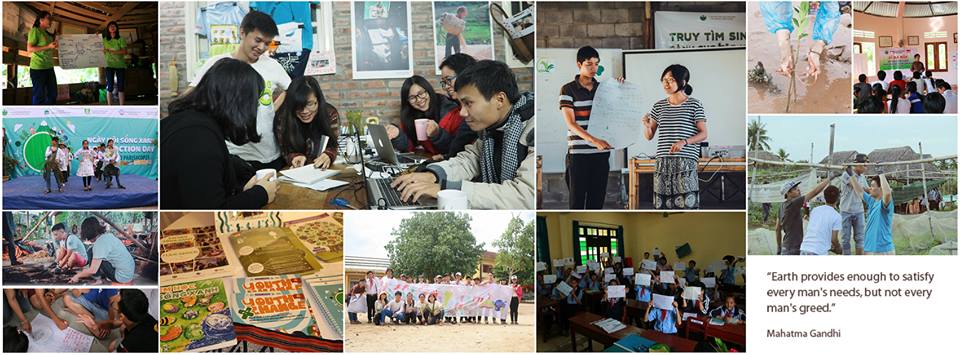LOOKING TOWARDS THE FUTURE: FIELD TRIP CONNECTING KNOWLEDGE & PRACTICAL PERSPECTIVES FROM THE ACTIONS OF ORGANIZATIONS & ENTERPRISES
On July 5 and 6, the Center for Development of Community Initiatives and Environment (C&E Center) in collaboration with the Faculty of Environment – Hanoi University of Natural Resources and Environment (HUNRE) organized a field trip for 10th-year graduate students majoring in Environmental Science and Natural Resources & Environment Management. The trip helped connect classroom theory with the practice of sustainable development and green transition taking place in organizations and enterprises.
📍 At Van Long Wetland Nature Reserve – a typical Ramsar site and the largest habitat of the rare Delacour’s langur, students listened to passionate conservation stories and gained a deeper understanding of the role of wetland ecosystems in regulating climate, preserving biodiversity and adapting to climate change. In addition, students also had a discussion with the Management Board about the potential application of renewable energy in management activities and ecotourism services in Van Long.
⚡ At AVC Vietnam Science and Technology Co., Ltd. (Dong Van 3 Industrial Park), the delegation visited the 3.2MW solar power system, closed wastewater treatment, and discussed with the company’s experts about greenhouse gas inventory, emission reduction roadmap – very “hot” issues related to renewable energy and the Net Zero development trend in Vietnam. This is a vivid demonstration of the energy transition taking place right in Vietnam’s industrial parks, demonstrating the proactive spirit of the business sector in adapting to green development goals, in line with the development orientation of renewable energy and carbon emission reduction.
💧 At the Dong Van III Industrial Park Centralized Wastewater Treatment Plant, the delegation visited the large-scale industrial wastewater treatment process – contributing to the protection of water resources and downstream ecosystems.
🎓 Through each destination, students not only learned more knowledge but also visualized more clearly their future career path – where they can become leaders in the energy transition, promote sustainable production and business and spread the mindset of zero-carbon development.
___________________________________
The integration both in classroom and field is an activity within the program “Building capacity for lectures and students on “Renewable Energy, Zero Carbon and Energy Transition (REZCET) toward green workforce and sustainable agriculture”







